The Multifaceted Saviour of Psalms 110 and 118: A Canonical Exegesis
Published: Nov 2019
£55.00
Since Gerald H. Wilson's landmark work, The Editing of the Hebrew Psalter (1985), scholars have been divided on how to interpret the appearances of the king in Book V (Psalms 107 —150). Many have agreed with Wilson in seeing a disjunction between Psalms 1 —89 and 90 —150, with Psalm 89 representing the apparent failure of the Davidic covenant, and signalling its replacement by a hope in the direct intervention of Yhwh without a role for a Davidic king. Although others have countered that Book V marks a return of the king, with references to David pointing to renewed hope in the Davidic covenant, in both cases scholars have interacted with the question as it was framed by Wilson.
Vaillancourt moves the discussion forward by broadening the question to the portrayal of the figure of salvation in Book V of the Psalms, and by narrowing the scope to detailed canonical exegesis on two of its most salient psalms.
Canonical exegesis of Psalm 110 displays a cosmic king at the right hand of Yhwh, who has a willing army at his disposal, who will mediate as priest between his people and Yhwh, and who will also accomplish a definitive victory for the people of God.
Canonical exegesis of Psalm 118 displays a suffering and conquering king who leads the victory procession from the battle-field, one whose role resonates with a prophetic figure like Moses (cf. Deut. 18.18), as he echoes the songs of the first (Exod. 15) and of a second exodus (Isa. 12) in his responsive song of thanks (vv. 19 —28).
In the final form of the book of Psalms, the Saviour figure in these psalms emerges as an eschatological figure of salvation who encompasses many hoped-for figures from across the Old Testament in one person, the one who will achieved full-scale deliverance for the people of God.
The Multifaceted Saviour of Psalms 110 and 118: A Canonical Exegesis
£55.00
Since Gerald H. Wilson's landmark work, The Editing of the Hebrew Psalter (1985), scholars have been divided on how to interpret the appearances of the king in Book V (Psalms 107 —150). Many have agreed with Wilson in seeing a disjunction between Psalms 1 —89 and 90 —150, with Psalm 89 representing the apparent failure of the Davidic covenant, and signalling its replacement by a hope in the direct intervention of Yhwh without a role for a Davidic king. Although others have countered that Book V marks a return of the king, with references to David pointing to renewed hope in the Davidic covenant, in both cases scholars have interacted with the question as it was framed by Wilson.
Vaillancourt moves the discussion forward by broadening the question to the portrayal of the figure of salvation in Book V of the Psalms, and by narrowing the scope to detailed canonical exegesis on two of its most salient psalms.
Canonical exegesis of Psalm 110 displays a cosmic king at the right hand of Yhwh, who has a willing army at his disposal, who will mediate as priest between his people and Yhwh, and who will also accomplish a definitive victory for the people of God.
Canonical exegesis of Psalm 118 displays a suffering and conquering king who leads the victory procession from the battle-field, one whose role resonates with a prophetic figure like Moses (cf. Deut. 18.18), as he echoes the songs of the first (Exod. 15) and of a second exodus (Isa. 12) in his responsive song of thanks (vv. 19 —28).
In the final form of the book of Psalms, the Saviour figure in these psalms emerges as an eschatological figure of salvation who encompasses many hoped-for figures from across the Old Testament in one person, the one who will achieved full-scale deliverance for the people of God.
Persuading God: Rhetorical Studies of First-Person Psalms
Published: Sep 2017
£19.00 – £45.00
Written by a scholar of rhetoric, Persuading God demonstrates that the first-person psalms that make up over a third of the Book of Psalms were designed not simply to express the feelings of individual Israelites but to persuade God to act.
The book casts a new light on the roles of all the players in the situations in which the psalms were composed and performed: the person represented by the speaker on whose particular troubles the psalm is based, the spectators and opponents who are sometimes addressed directly by the speaker, the poet-musicians who craft the speaker's case and occasionally undermine it, and most of all, God as the direct addressee whose presumed openness to persuasion and willingness to intervene underlie the entire event.
The readings provide new explanations for many long-standing puzzles: how to deal with the long string of imprecations in Psalm 109, whether Psalm 4 is best read as protesting a false accusation or as countering apostasy, why so many verses in Psalm 62 begin with the exclamation ach , and, more generally, why so many first-person psalms seem to swing abruptly between despair and praise.
The book demonstrates the relevance of contemporary rhetorical theory to Hebrew Bible studies, including the work of ChaÌøm Perelman and Lucie Olbrechts-Tyteca, Kenneth Burke, and Mikhail Bakhtin. It also illuminates the state of rhetorical practice in the ancient Near East at the same time that rhetorical theories were first being codified and taught in archaic and classical Athens.
Persuading God: Rhetorical Studies of First-Person Psalms
£19.00 – £45.00
Written by a scholar of rhetoric, Persuading God demonstrates that the first-person psalms that make up over a third of the Book of Psalms were designed not simply to express the feelings of individual Israelites but to persuade God to act.
The book casts a new light on the roles of all the players in the situations in which the psalms were composed and performed: the person represented by the speaker on whose particular troubles the psalm is based, the spectators and opponents who are sometimes addressed directly by the speaker, the poet-musicians who craft the speaker's case and occasionally undermine it, and most of all, God as the direct addressee whose presumed openness to persuasion and willingness to intervene underlie the entire event.
The readings provide new explanations for many long-standing puzzles: how to deal with the long string of imprecations in Psalm 109, whether Psalm 4 is best read as protesting a false accusation or as countering apostasy, why so many verses in Psalm 62 begin with the exclamation ach , and, more generally, why so many first-person psalms seem to swing abruptly between despair and praise.
The book demonstrates the relevance of contemporary rhetorical theory to Hebrew Bible studies, including the work of ChaÌøm Perelman and Lucie Olbrechts-Tyteca, Kenneth Burke, and Mikhail Bakhtin. It also illuminates the state of rhetorical practice in the ancient Near East at the same time that rhetorical theories were first being codified and taught in archaic and classical Athens.
The Bible Retold by Jewish Artists, Writers, Composers and Filmmakers
Published: Oct 2015
£60.00
Helen Leneman and Barry Dov Walfish, both specialists in biblical reception history, have compiled an unusually rich collection of new essays by experts in their fields. This book is a pioneering attempt to portray and analyse the visions of twentieth- and twenty-first century Jewish artists working in different media —visual art, literature (novels, poetry and short stories), music (opera, oratorio and song), and film —who have retold biblical narratives through their art. Reading these essays together will bring a new appreciation and understanding of what makes the perspective of these visual artists, writers, composers and filmmakers on the Hebrew Bible uniquely Jewish.
All of these Jewish visions can be considered a form of modern midrash, as the artists imaginatively fill in gaps in the biblical narrative, bringing a modern sensibility to the meanings of the stories.
Under the heading 'Biblical Women', the stories of the matriarchs, Hagar, and other biblical women are re-imagined in the visual arts, poetry and music. Several further chapters focus on the story of the Aqedah (Binding of Isaac), as represented in the visual arts, literature and music. Other retellings of biblical narratives through short stories are then examined, while yet other chapters explore the books of Esther and Psalms as envisioned and retold in the visual arts, opera, literature and film.
These retellings, analysed and discussed by the authors of this ground-breaking volume, will stimulate the reader to view the texts in new ways or to confront their challenge to personal or traditional interpretations of those texts.
The Bible Retold by Jewish Artists, Writers, Composers and Filmmakers
£60.00
Helen Leneman and Barry Dov Walfish, both specialists in biblical reception history, have compiled an unusually rich collection of new essays by experts in their fields. This book is a pioneering attempt to portray and analyse the visions of twentieth- and twenty-first century Jewish artists working in different media —visual art, literature (novels, poetry and short stories), music (opera, oratorio and song), and film —who have retold biblical narratives through their art. Reading these essays together will bring a new appreciation and understanding of what makes the perspective of these visual artists, writers, composers and filmmakers on the Hebrew Bible uniquely Jewish.
All of these Jewish visions can be considered a form of modern midrash, as the artists imaginatively fill in gaps in the biblical narrative, bringing a modern sensibility to the meanings of the stories.
Under the heading 'Biblical Women', the stories of the matriarchs, Hagar, and other biblical women are re-imagined in the visual arts, poetry and music. Several further chapters focus on the story of the Aqedah (Binding of Isaac), as represented in the visual arts, literature and music. Other retellings of biblical narratives through short stories are then examined, while yet other chapters explore the books of Esther and Psalms as envisioned and retold in the visual arts, opera, literature and film.
These retellings, analysed and discussed by the authors of this ground-breaking volume, will stimulate the reader to view the texts in new ways or to confront their challenge to personal or traditional interpretations of those texts.
Psalms 1-2: Gateway to the Psalter
Published: Jan 2013
£50.00
As against the form-critical approach, which sees the first two psalms as more or less random examples of the torah and royal types, this study argues for a deliberate and cogent arrangement of Psalms 1 and 2.
A detailed linguistic analysis of and comparison between these two apparently disparate psalms at the outset of the book reveals the purpose for their juxtaposition. The principal characters in the first psalm are further described in the second. The man of Psalm 1 is portrayed in eschatological terms as an impeccable royal, sacerdotal, and all-conquering military figure. He appears again in Psalm 2 but as a heavenly-enthroned victorious priest and king. His opponents, the wicked in Psalm 1, are identified in Psalm 2 as recalcitrant rulers and peoples who reject his rule and seek to do away with him.
However, the calculated divine response to their plotting assures their ultimate defeat unless they submit to him. This cohesive and coherent introductory pair of psalms sets a pattern at the beginning for reading all those that follow. Indeed, a thorough understanding of the first two psalms and their integrated message is a prerequisite for understanding the purpose of the entire book.
Psalms 1-2: Gateway to the Psalter
£50.00
As against the form-critical approach, which sees the first two psalms as more or less random examples of the torah and royal types, this study argues for a deliberate and cogent arrangement of Psalms 1 and 2.
A detailed linguistic analysis of and comparison between these two apparently disparate psalms at the outset of the book reveals the purpose for their juxtaposition. The principal characters in the first psalm are further described in the second. The man of Psalm 1 is portrayed in eschatological terms as an impeccable royal, sacerdotal, and all-conquering military figure. He appears again in Psalm 2 but as a heavenly-enthroned victorious priest and king. His opponents, the wicked in Psalm 1, are identified in Psalm 2 as recalcitrant rulers and peoples who reject his rule and seek to do away with him.
However, the calculated divine response to their plotting assures their ultimate defeat unless they submit to him. This cohesive and coherent introductory pair of psalms sets a pattern at the beginning for reading all those that follow. Indeed, a thorough understanding of the first two psalms and their integrated message is a prerequisite for understanding the purpose of the entire book.
Yearning for You: Psalms and the Song of Songs in Conversation with Rock and Worship Songs
Published: Sep 2012
£60.00
From your lips she drew the Hallelujah' (Leonard Cohen). Romance and sexual desire are expressed in some of today's most popular songs using religious language. Conversely, the latest Christian worship songs sometimes invite worshippers to speak to God in the language of desire and romance. Contemporary western culture and spirituality blur the boundaries between desire for God and sexual desire. This innovative book stages a conversation first between biblical songs and then between biblical and contemporary songs. Desire for intimacy is the topic of conversation. Texts from the Song of Songs are first in dialogue with some of the Psalms, exploring their themes of desire, absence, longing, hearing, delight, feasting, physicality, mutuality and security. The circle of conversation is then widened, to consider the voices of contemporary rock and worship songs in the light of what has been uncovered in the biblical songs, and to hear what questions today's songs may ask of the ancient texts. The biblical voices resist any suggestion, Goodman argues, that human sexual experience may be a means of encounter with God, or a sacrament of such an encounter. They also highlight the disparity in power between God and human beings which weighs against any sense of a balanced mutuality in yearning. Yet eros or romance may serve as a metaphor for a divine —human relationship, if used alongside a variety of other metaphors. At points of intersection, where they converge and conflict, these different metaphors can create a deeper understanding of the yearning for intimacy, both human and divine.
Yearning for You: Psalms and the Song of Songs in Conversation with Rock and Worship Songs
£60.00
From your lips she drew the Hallelujah' (Leonard Cohen). Romance and sexual desire are expressed in some of today's most popular songs using religious language. Conversely, the latest Christian worship songs sometimes invite worshippers to speak to God in the language of desire and romance. Contemporary western culture and spirituality blur the boundaries between desire for God and sexual desire. This innovative book stages a conversation first between biblical songs and then between biblical and contemporary songs. Desire for intimacy is the topic of conversation. Texts from the Song of Songs are first in dialogue with some of the Psalms, exploring their themes of desire, absence, longing, hearing, delight, feasting, physicality, mutuality and security. The circle of conversation is then widened, to consider the voices of contemporary rock and worship songs in the light of what has been uncovered in the biblical songs, and to hear what questions today's songs may ask of the ancient texts. The biblical voices resist any suggestion, Goodman argues, that human sexual experience may be a means of encounter with God, or a sacrament of such an encounter. They also highlight the disparity in power between God and human beings which weighs against any sense of a balanced mutuality in yearning. Yet eros or romance may serve as a metaphor for a divine —human relationship, if used alongside a variety of other metaphors. At points of intersection, where they converge and conflict, these different metaphors can create a deeper understanding of the yearning for intimacy, both human and divine.
Images of Zion: Biblical Antecedents for the New Jerusalem
Published: Apr 2010
£60.00
This study, unparalleled in recent scholarly writing, sets out to examine the broad sweep of the biblical theological tradition about Jerusalem/Zion as the antecedent to Revelation's depiction of the New Jerusalem.
In the Old Testament, Jerusalem/Zion is depicted in both its ideal form and its actual manifestation. In the Psalms (and seminally in the Pentateuch), Zion is depicted as similar to the holy mountains of the gods in Ugaritic religion. But it is not only a dwelling-place of the deity: it is also an earthly city inhabited by humans, and so it becomes a place of community of the divine and the human. The historical books of course make no secret of the realities of life in the far from holy Jerusalem, and, in the prophets also, the city of Jerusalem is the site of wrongdoing and corruption, a place attracting judgment; but equally it is the focus for eschatological anticipations of a renewed community that does fulfil the ideal.
In the New Testament, by its rejection of the Messiah earthly Jerusalem forfeits its role as the true Jerusalem/Zion, which is taken over by Jesus and the church. Occasionally we get glimpses of the belief that the true Jerusalem is in heaven (a development begun in Second Temple literature). The book of Revelation picks up as well from Second Temple literature the theme of the identity of Jerusalem with the Garden of Eden, combining this idea with renewal-of-Zion passages from the prophets to depict the final state of God's people as a place of blessedness, community, life and safety, as well of intimacy with God.
Images of Zion: Biblical Antecedents for the New Jerusalem
£60.00
This study, unparalleled in recent scholarly writing, sets out to examine the broad sweep of the biblical theological tradition about Jerusalem/Zion as the antecedent to Revelation's depiction of the New Jerusalem.
In the Old Testament, Jerusalem/Zion is depicted in both its ideal form and its actual manifestation. In the Psalms (and seminally in the Pentateuch), Zion is depicted as similar to the holy mountains of the gods in Ugaritic religion. But it is not only a dwelling-place of the deity: it is also an earthly city inhabited by humans, and so it becomes a place of community of the divine and the human. The historical books of course make no secret of the realities of life in the far from holy Jerusalem, and, in the prophets also, the city of Jerusalem is the site of wrongdoing and corruption, a place attracting judgment; but equally it is the focus for eschatological anticipations of a renewed community that does fulfil the ideal.
In the New Testament, by its rejection of the Messiah earthly Jerusalem forfeits its role as the true Jerusalem/Zion, which is taken over by Jesus and the church. Occasionally we get glimpses of the belief that the true Jerusalem is in heaven (a development begun in Second Temple literature). The book of Revelation picks up as well from Second Temple literature the theme of the identity of Jerusalem with the Garden of Eden, combining this idea with renewal-of-Zion passages from the prophets to depict the final state of God's people as a place of blessedness, community, life and safety, as well of intimacy with God.
Protest Against God: The Eclipse of a Biblical Tradition
Published: Jan 2007
£15.00 – £50.00
The Hebrew Bible contains many examples of protest or complaint against God. There are classic cases in the psalms of individual lament, but we find the same attitude in community complaint psalms, in the prophetic challenges to God, and in the Book of Job.
And yet, after the exile, the complaint tradition was largely suppressed or marginalized. In this imaginative book, Morrow asks the unheard of question, Why? A shift in the religious imagination of early Judaism had taken place, he argues, spearheaded by the psychology of trauma and by international politics. A magnification of divine transcendence downgraded the intercessory role of the prophet, controlled the raw pain of exile (Lamentations, Second Isaiah), and led to intransigent refusal of the logic of lament (the friends and Yahweh in Job). The theology of complaint was eventually overshadowed by the piety of penitence and praise (the Dead Sea Scrolls).
Modern readers of the Hebrew Bible are not obliged to assent to the loss of lament, nevertheless. Ours is an age when the potency of the biblical complaints against God is being newly appropriated. Although the transcendental imagination of Western culture itself is moving into eclipse, a heightened individual consciousness has emerged. There may still be life, therefore, in the ancient prayer pattern of arguing with God, which assumes that worshippers have rights with God as well as duties, that the Creator has obligations to the creation as well as prerogatives.
This stylish intellectual history will be welcomed for its scope, its panache and its theological engagement. Awarded the 2007 R.B.Y. Scott Book Award for an outstanding book in the areas of Hebrew Bible and/or the Ancient Near East written by a member of the Canadian Society of Biblical Studies.
Protest Against God: The Eclipse of a Biblical Tradition
£15.00 – £50.00
The Hebrew Bible contains many examples of protest or complaint against God. There are classic cases in the psalms of individual lament, but we find the same attitude in community complaint psalms, in the prophetic challenges to God, and in the Book of Job.
And yet, after the exile, the complaint tradition was largely suppressed or marginalized. In this imaginative book, Morrow asks the unheard of question, Why? A shift in the religious imagination of early Judaism had taken place, he argues, spearheaded by the psychology of trauma and by international politics. A magnification of divine transcendence downgraded the intercessory role of the prophet, controlled the raw pain of exile (Lamentations, Second Isaiah), and led to intransigent refusal of the logic of lament (the friends and Yahweh in Job). The theology of complaint was eventually overshadowed by the piety of penitence and praise (the Dead Sea Scrolls).
Modern readers of the Hebrew Bible are not obliged to assent to the loss of lament, nevertheless. Ours is an age when the potency of the biblical complaints against God is being newly appropriated. Although the transcendental imagination of Western culture itself is moving into eclipse, a heightened individual consciousness has emerged. There may still be life, therefore, in the ancient prayer pattern of arguing with God, which assumes that worshippers have rights with God as well as duties, that the Creator has obligations to the creation as well as prerogatives.
This stylish intellectual history will be welcomed for its scope, its panache and its theological engagement. Awarded the 2007 R.B.Y. Scott Book Award for an outstanding book in the areas of Hebrew Bible and/or the Ancient Near East written by a member of the Canadian Society of Biblical Studies.

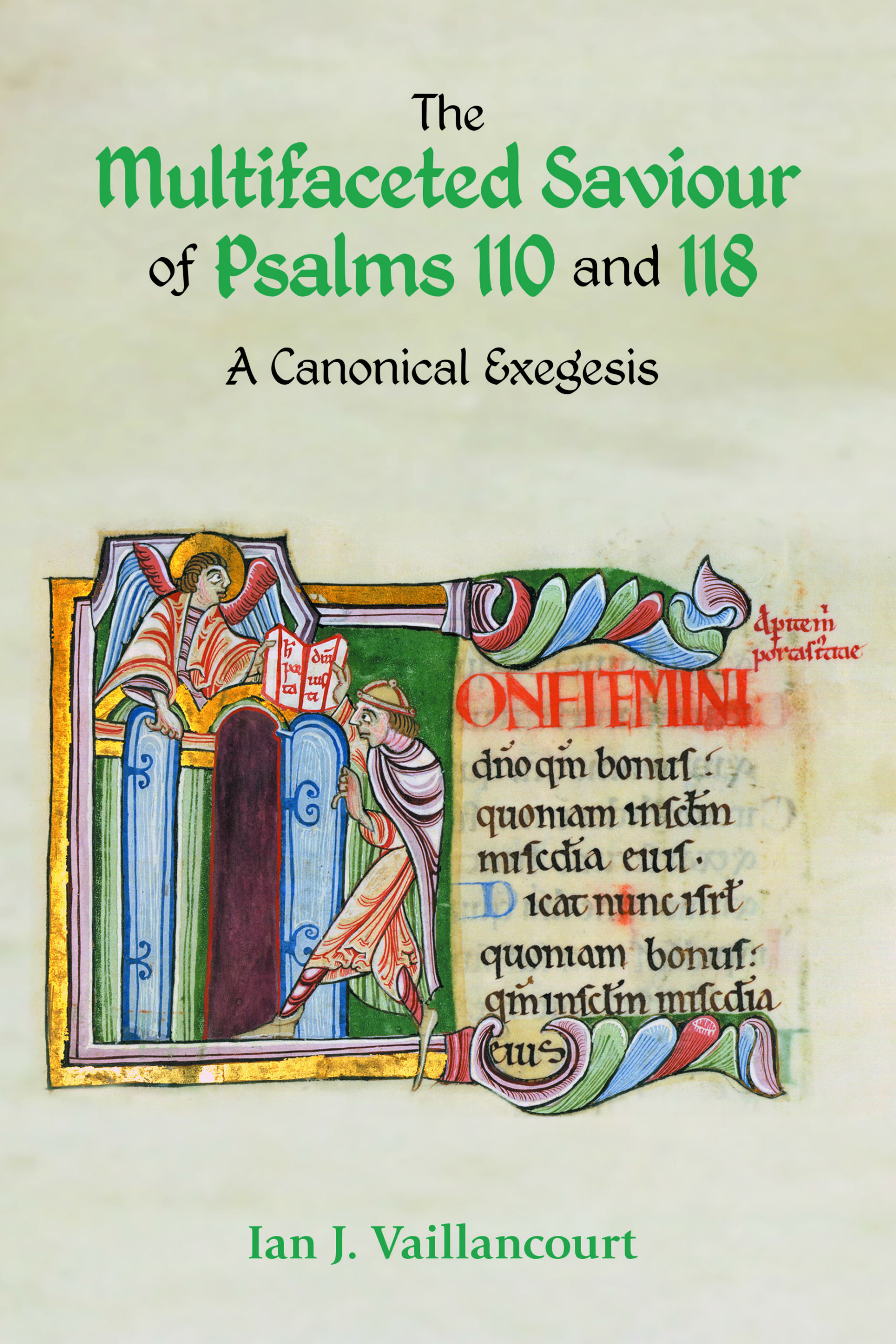
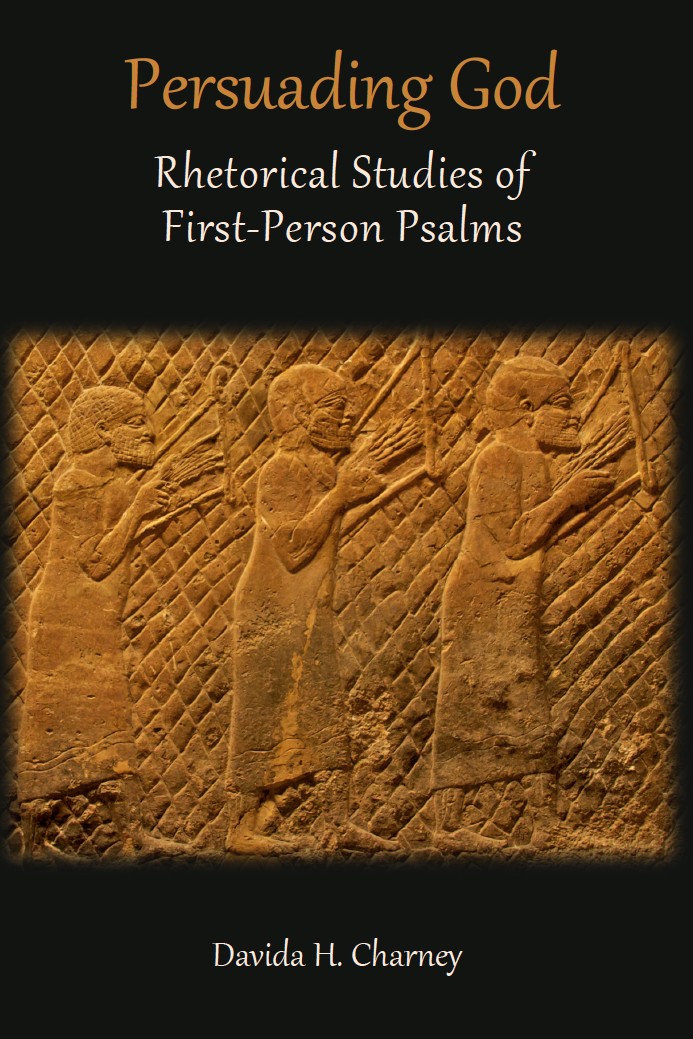
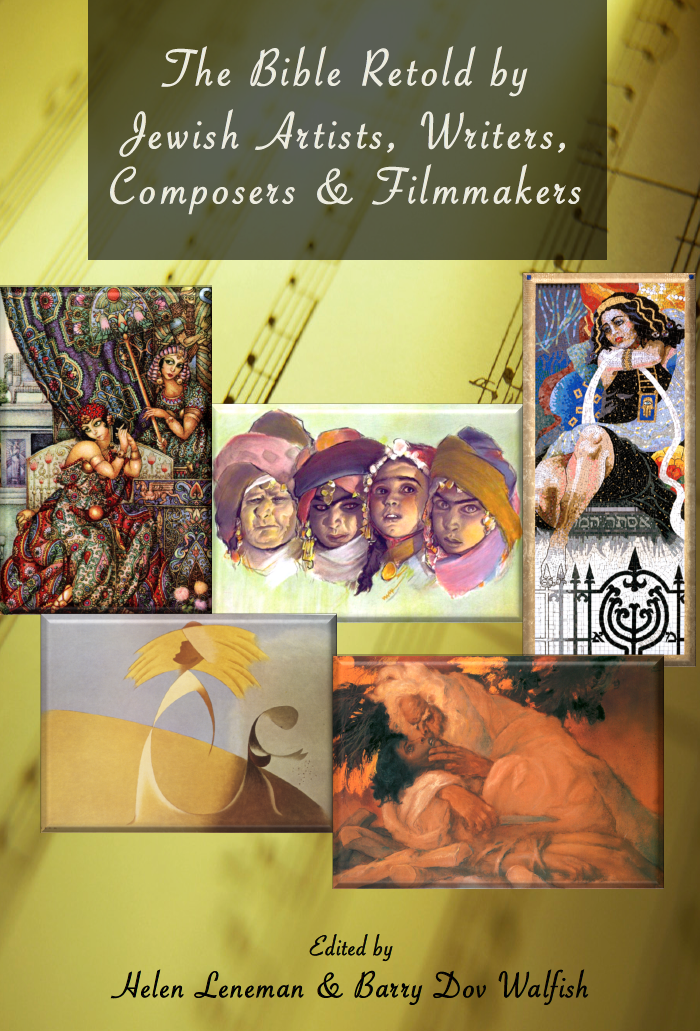
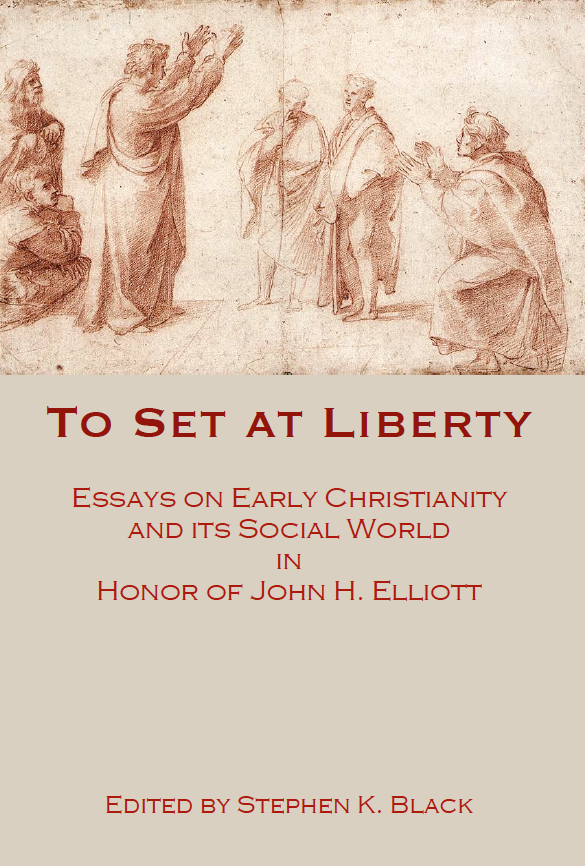
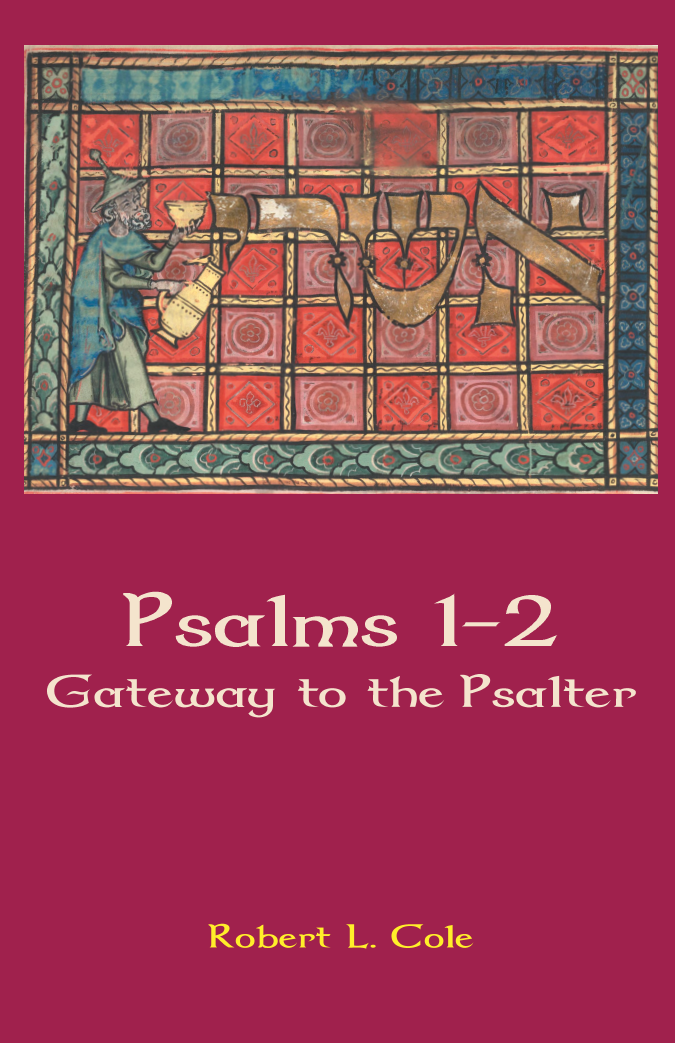
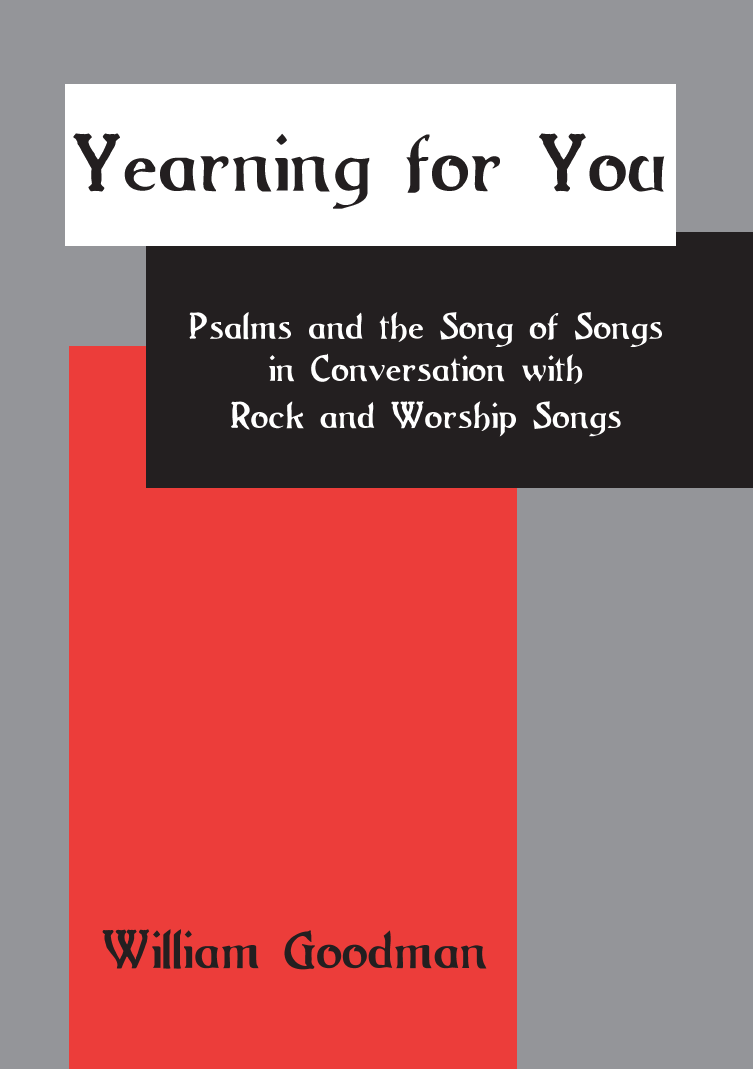
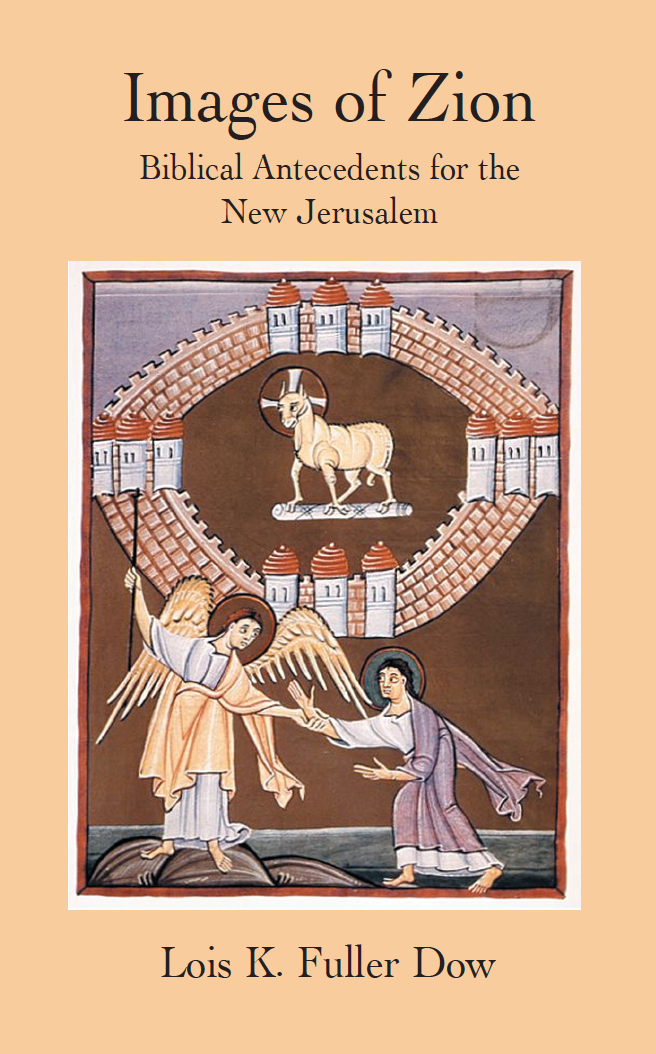

Psalms
Psalms